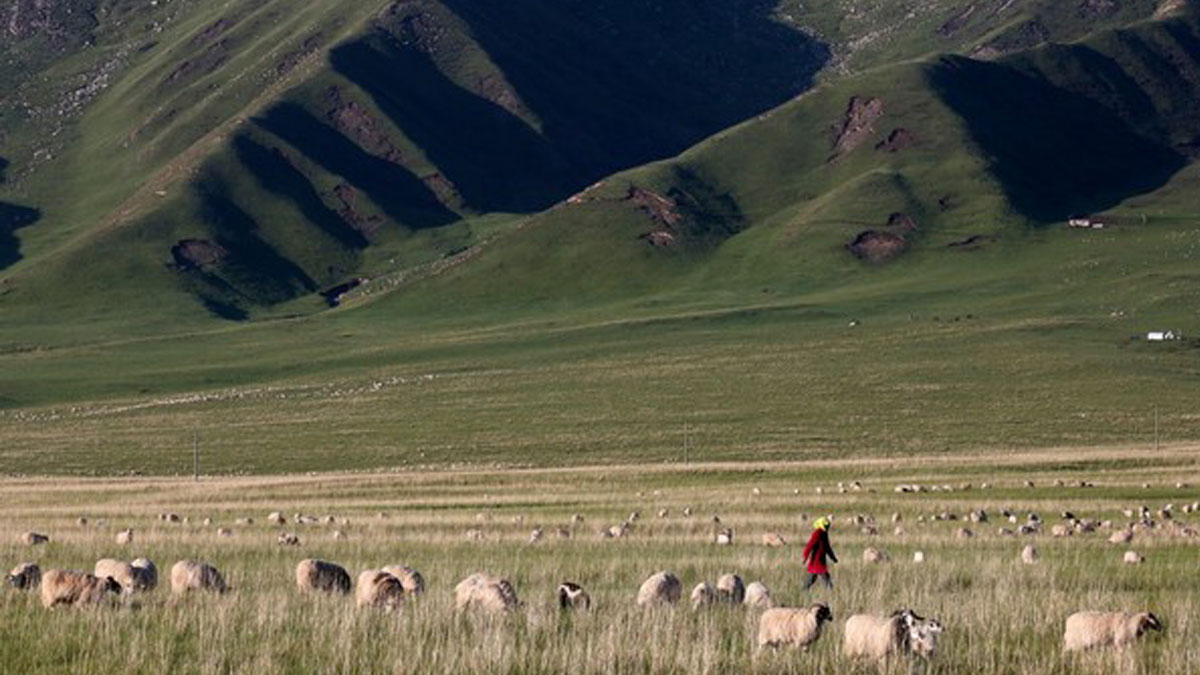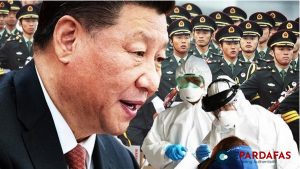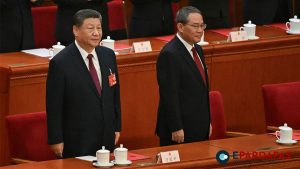
China Forcibly Seizes Tibetan Farmers’ Land To Build Hydropower Dam, Says Report

The situation in Tibet continues to raise concerns, with ongoing uncertainty about China’s intentions as authorities are forcibly seizing property from Tibetan farmers in Rebgong County, Qinghai Province, with an excuse to construct a hydropower dam, according to Tibet Press.
According to Tibet Press, Locals have been warned to cooperate and abandon their land, with the threat that their compensation will be withheld for those who refuse to give their land. The order was issued on May 23, 2023, by Langya village authorities, which are roughly an hour’s drive from Rebgong. It required seven villages in the area to relocate so that the Chinese government could start the first phase of construction ten days after the notice was issued.
This dam is one of the major initiatives of China’s 13th Five-Year Plan and has a total area of 4.58 million square metres and will cost Yuan 245 million to build.
Rebgong, also called Tongren in Chinese, is a Tibetan-populated area of the Qinghai province of China. It is situated in Malho, sometimes called Huangnan. The reservoir region of the project is home to the Tibetan settlements Shu-Ong-Kye, Shu-Ong-Nyi-tha, Langya, Malpa-Jam, Malpa-Kharnang-Kharshi, and Malpa-Chauwo. It is predicted that the development of the reservoir would start soon. According to Tibet Press, peasants would be compelled to move to towns and cities in search of temporary employment if local officials seized their property.
The policy of rural urbanisation, the forcible relocating of Tibetan nomads and farmers to urban areas, and the ongoing settling of considerable numbers of Han Chinese in Tibet are all examples of China’s efforts to compel the incorporation of Tibetan minorities into the Han-Chinese-dominated majority.
Chinese infrastructure and development projects in Tibet have led to frequent clashes with Tibetans, who accuse Chinese firms and local officials of improperly confiscating land and disrupting the lives of local people, Tibet Press reported.
This issue is not new and traces back to China’s invasion of Tibet in 1951, resulting in a continuous deterioration of Tibetan lives. Ever since the protests in 2008, more than 150 Tibetan monks have self-immolated. The torture, mistreatment and deaths of thousands from Chinese state repression have resulted in repercussions that are felt even today. Note that 87,000 people died when China invaded Tibet in 1951. Countless more have died in the subsequent years and the toll is telling.
The cultural and ethnic identity of Tibet is being erased systematically by China.
Today, relatives of Tibetan protestors are routinely harassed, thrown into prison for “re-education” denied political and medical rights, and even killed if deemed to be a threat. The treatment of nomadic herders who lived in Tibet has been even worse. More than a million nomads have been forced to leave the grasslands with a ridiculous plea that this move is meant to protect the ecology of the grasslands, Tibet Press reported.
After two years of living in urban environments, most were forced to abandon their new homes to use them as tourist centres and for government housing. The year 2017 witnessed a state-sponsored forced resettlement wherein Tibetan nomads returned to the grasslands without the animals that were their main means of livelihood. By 2018, Chinese security forces in the region were forcibly promoting “bilingual education” by arresting anyone promoting the Tibetan mother tongue and related issues as an ‘underworld gang crime’.
Following Xi Jimping’s directive to improve security in the region, various organs of the Chinese state including, the Public Security Bureau, the State Security Bureau, the United Front Work Department, the Religious Affairs Bureau, the TAR Internet Affairs Office, and the Internet Management Department jumped to establish political achievements. There is no authentic information about the extent of secret trials being conducted in the region, Tibet Press reported.
With the introduction of cash rewards for spilling the beans on ‘dissidents, cadres at every level of government are making the lives of remaining Tibetans in the region even more difficult. A recent Freedom House report lists Tibet as the worst country to live in the world. Another feature of Chinese rule in Tibet is the political re-education camps.
China has criminalized any form of social activism in the region and is hard at work to try and destroy the influence of any form of traditional leaders at the grassroot levels under the excuse of eradicating ‘mafia-like gangs. There is a massive database of Tibetans in the region wherein anyone affiliated with dissidents is deprived of political rights and access to jobs and healthcare.
Tibet is one of the issues that China remains sensitive about globally. This translates in practice to the United Front Works Department (UFWD) which operates to subvert opposition to the CCP, both within China and overseas. Apart from confusing ethnic minorities on their rights of self-determinism and setting up a false narrative, the UFWD is also active internationally with the objective of co-opting ethnic Chinese individuals and communities abroad, Tibet Press reported.
The spy case against the Overseas China Affairs Office was a prime example of the UFWD in action. The launch of the ‘China Association for Preservation and Development for Tibet Culture’ is an “NGO” that has been set up by the UFWD for the sole purpose of defrauding the world on China’s human rights track record in Tibet. Another institution that is being led by former top CCP officials is the ‘China Society for Human Rights Studies’ which deeply studies foreign human rights in the US as a propaganda tool.
The presence of government-sponsored non-governmental organizations is an obstructionist tact that China is utilizing to establish itself as a paragon of human rights in front of the United Nations.
According to UN sources, more than 23 Chinese NGOs have falsified data in the UN Committee on Economic, Social and Cultural Rights (UNCESCR) to defend China’s track record of breaking international treaties and covenants it is party to. The ‘rule of law’ is noticeably absent in China, where there was the infamous 709 crackdown against more than 300 lawyers, paralegals and assistants, Tibet Press reported.
Three years after the whistle-blower Li Wenliang died of Covid, China is still standing firm in maintaining its stance on the pandemic in the international arena. China’s game plan in Tibet become clear from three UN reports released in February 2023. These reports state that nearly one million Tibetan children have been separated from their families and sent to residential schools run by the CCP.
Tibet Press claims that in these schools, Tibetan children are forced to learn Mandarin with a curriculum that teaches them about Chinese culture and are indoctrinated with CCP ideology. In Marc 2023, the UNCESCR expressed concern at China’s “coercive boarding school system and expressed concern over the CCPs attempt to undertake large-scale erasure of Tibetan identity and culture.
There is a clear and present danger to the Tibetan people from the CCP. One way or another, the Communist Party aims to Sinicize all of Tibet and its people. This being the objective, it is not surprising that the record of their actions makes their intentions crystal clear. The lesson learnt is that Tibetans the world over must unite and rally behind their brethren in Tibet. Unless this happens, China will soon subsume the Tibetan identity within Han China and then it will be too late.












Comments